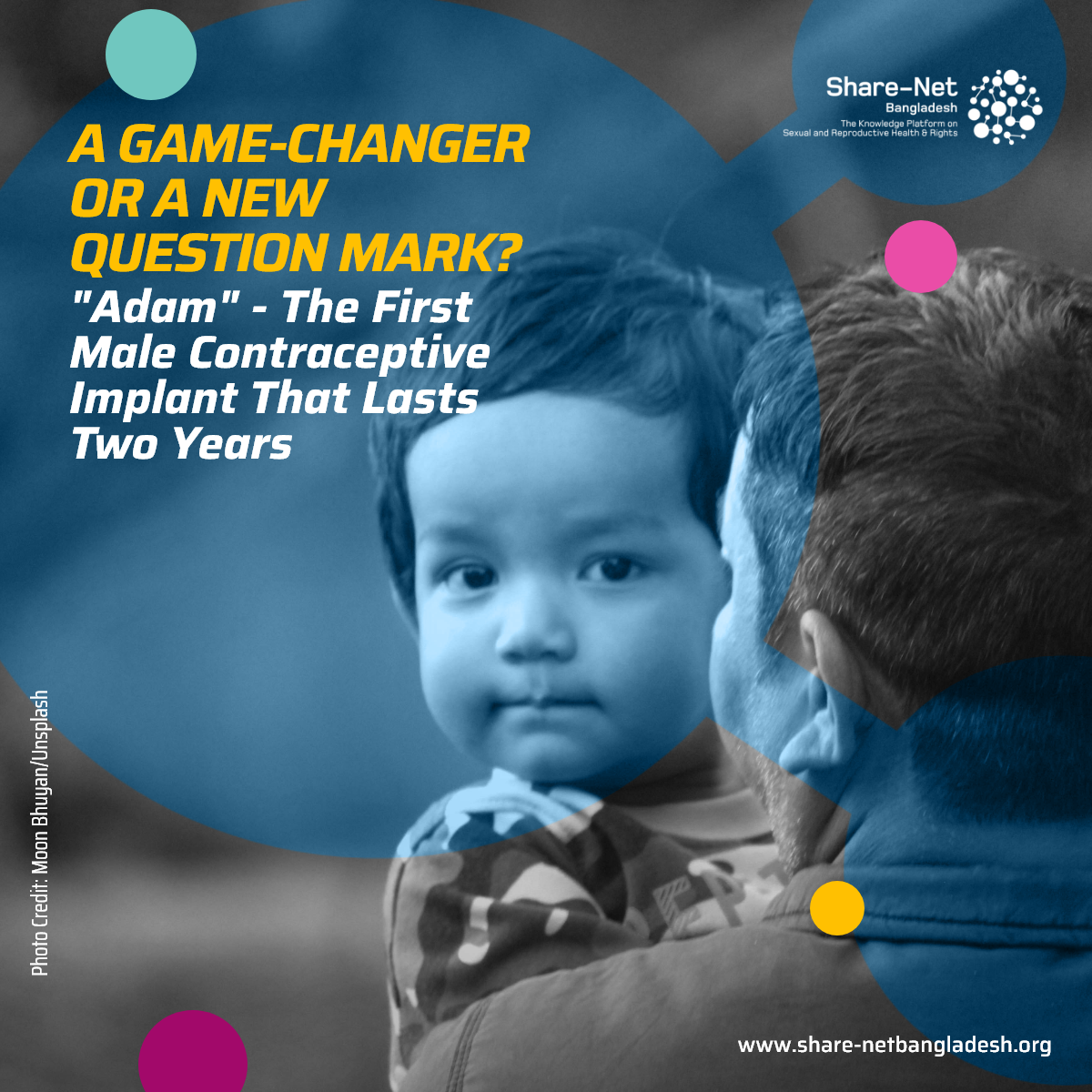A Game-Changer or a New Question Mark? “Adam” – The First Male Contraceptive Implant That Lasts Two Years
A promising breakthrough in male contraception has sparked global conversations around sexual and reproductive health and rights (SRHR). A non-hormonal male contraceptive implant, dubbed Adam, has demonstrated success in preventing sperm release for up to 24 months in early-stage clinical trials.
Developed by US-based company Contraline, this water-soluble hydrogel implant is inserted into the vas deferens—the sperm ducts—blocking sperm from mixing with semen. Unlike vasectomy, Adam is designed to be reversible, opening up a new horizon in male birth control.
“This is really exciting because our goal since day one has been to create a two-year-long, temporary or reversible male birth control,” said Kevin Eisenfrats, CEO and founder of Contraline. “And we have the first data to show that that’s possible.”
So far, the phase 1 trial shows promise: no sperm was detected in the semen of the two participants who completed the 24-month mark, with no serious adverse events reported. The company plans to begin phase 2 trials in Australia later this year involving up to 50 participants.
A New Chapter In SRHR
In a world where women bear most of the burden of birth control, Adam could help balance the scale. Globally, about 61% of reproductive-aged women use some form of contraception—but male participation remains low. In Bangladesh, male sterilisation (vasectomy) accounts for less than 1% of modern contraceptive use, according to BDHS 2017-18 data.
Adam’s appeal lies in its non-hormonal, minimally invasive, and potentially reversible nature—essentially, an IUD for men. The procedure takes only 10 minutes to insert using local anaesthetic and does not require ongoing medication or user compliance.
Experts are cautiously optimistic. “It’s impressive that this looks like something that does actually work,” said Prof. Richard Anderson of the University of Edinburgh. He emphasised the importance of having both hormonal and non-hormonal male contraceptive options in development.
But The Questions Linger
While the hydrogel implant degrades naturally over time—according to animal trials—human reversibility data remains unpublished. Concerns also linger over the long-term impact on the vas deferens and the implications if the implant causes scarring.
And there’s a more subtle, darker question: Could reduced risk of unintended pregnancy fuel riskier sexual behaviour or even a rise in sexual violence? If contraception becomes a ‘private male choice’, some fear it could remove a layer of accountability.
Prof. Jon Oatley of Washington State University voiced such concern, noting that long-term outcomes of blocking sperm ducts are still unknown. “Given a choice of a pill, patch, injection or surgery, I believe that most men would choose pill or patch over surgery,” he added.
As the Adam implant progresses through trials, it promises a more equal future in reproductive responsibility. But as with all innovations, the social and ethical impacts must be closely watched.
Source: The Guardian
Photo Credit: Moon Bhuyan/Unsplash


